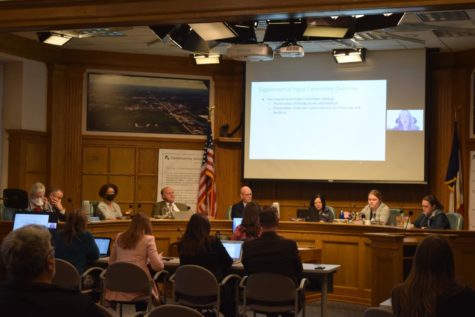ISU health care reform forum: David Surdam
May 17, 2010
Would you want to live in an apartment building where the landlord “pays” for heating and air conditioning or one where each tenant pays individually?
David Surdam, associate professor of economics at University of Northern Iowa, used this example to describe the concept of rationing within the new health care bill.
“Rationing was here before, is here and will be here in the future,” Surdam said. “We don’t live in a world of a cornucopia where everyone gets what they want.”
In this example, the former instance would happen when the cost of heating and air conditioning is included in each month’s rent, but if one tenant were to change the settings, then every tenant would be forced to pay for this change.
In the latter instance, only the tenant who changes the settings would have to pay for the change.
Surdam related this to the health care bill, where every American will be forced to have health care by 2014, while right now it is up to the individual to decide whether or not he or she wants health care.
“No health insurance does not mean no care,” Surdam said. “People can pay for moderate health care expenditures out of pocket.”
A point of Surdam’s speech that raised a lot of debate in the audience was his description of the uninsured.
“Most uninsured are only temporarily uninsured, most for less than a year,” Surdam said.
Arnie Arnesen, talk radio personality and former Democratic representative for New Hampshire, challenged Surdam’s point.
“The year I didn’t have health insurance was the year I found a lump in my breast,” Arnesen said. “When I went to the doctor in January and he asked why I hadn’t come in when I found the lump I told him I didn’t have health insurance. He told me how cheap mammograms were, but I had been forced to make a choice.”
While Surdam did not directly respond to Arnesen’s argument, he posed a few open-ended questions to the audience.
“What are the ethics of forcibly redistributing income and wealth from some people to provide health care for other people?” Surdam said. “Should a group with lower customer satisfaction [Congress] tinker with an industry with greater customer satisfaction [health insurance]? And is this a case of a president and Congress crying “crisis” one too many times?”
















